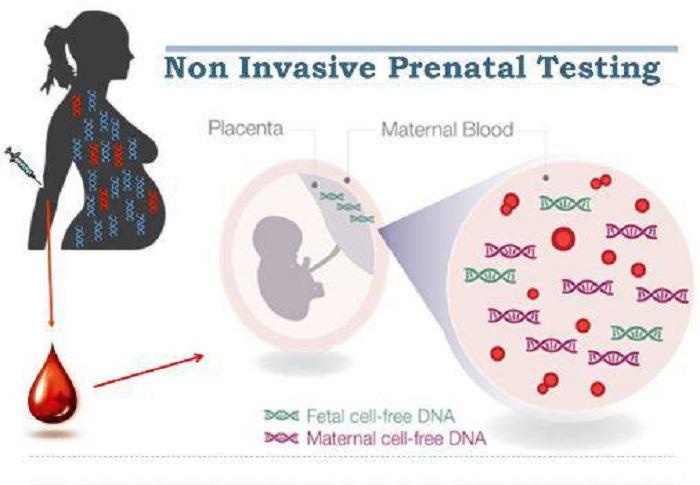Non-Invasive Prenatal Testing(NIPT) Companies Overview:
Pregnancy marks a transformative period in a person's life, filled with anticipation and excitement. Alongside the joys, however, come concerns about the health and well-being of the developing fetus. Traditional prenatal screening methods, such as amniocentesis and chorionic villus sampling (CVS), though effective, carry a small risk of miscarriage and are invasive procedures. Non-Invasive Prenatal Testing (NIPT) has emerged as a groundbreaking alternative, providing accurate genetic information about the fetus without the need for invasive procedures. In this article, we explore the pioneering companies behind NIPT and how they are revolutionizing prenatal care.
What is NIPT?
NIPT involves analyzing cell-free fetal DNA (cffDNA) present in the mother's blood to screen for chromosomal abnormalities such as Down syndrome (Trisomy 21), Edwards syndrome (Trisomy 18), and Patau syndrome (Trisomy 13), as well as other genetic conditions. The procedure is typically performed during the first trimester of pregnancy, offering earlier detection compared to traditional screening methods.
Leading NIPT Companies:
- Illumina, Inc.: Illumina is a prominent player in the field of genomics and molecular biology, renowned for its innovative sequencing technologies. The company's NIPT solution, VeriSeq NIPT Solution, utilizes next-generation sequencing (NGS) to analyze cffDNA with exceptional accuracy and reliability. Illumina's platform offers comprehensive screening for a wide range of chromosomal abnormalities and microdeletions, empowering healthcare providers to deliver informed care to expectant parents.
- Natera, Inc.: Natera specializes in genetic testing and diagnostic solutions, with a focus on reproductive health. The company's NIPT offering, Panorama, leverages advanced bioinformatics algorithms to analyze cffDNA and detect chromosomal abnormalities with high sensitivity and specificity. Panorama also provides additional insights, such as fetal sex determination and assessment of fetal fraction, enhancing its clinical utility.
- Sequenom (a subsidiary of Laboratory Corporation of America Holdings - LabCorp): Sequenom, now part of LabCorp, pioneered NIPT with the introduction of the MaterniT21 PLUS test. This test utilizes targeted NGS to analyze cffDNA and detect common chromosomal abnormalities with exceptional accuracy. Sequenom's legacy in the field of prenatal genetics continues to influence the development of innovative NIPT solutions.
- PerkinElmer, Inc.: PerkinElmer is a global leader in healthcare and diagnostics, offering a comprehensive portfolio of products and services. The company's NIPT solution, Vanadis NIPT, employs a novel approach known as digital PCR (dPCR) to quantify cffDNA and detect chromosomal abnormalities with high precision. Vanadis NIPT provides reliable results while minimizing the risk of false positives and false negatives.
Advantages of NIPT:
NIPT offers several advantages over traditional prenatal screening methods:
- Non-invasive: NIPT involves a simple blood draw from the mother, eliminating the need for invasive procedures such as amniocentesis and CVS.
- Early detection: NIPT can be performed as early as 9-10 weeks into pregnancy, allowing for timely intervention and management if abnormalities are detected.
- High accuracy: NIPT has a high detection rate for common chromosomal abnormalities, with a low risk of false positives and false negatives.
- Comprehensive screening: NIPT can screen for a wide range of chromosomal abnormalities, including trisomies, sex chromosome abnormalities, and select microdeletions.
Browse More Information:
Considerations and Limitations:
While NIPT offers significant benefits, it's essential to consider certain factors:
- Screening vs. diagnostic testing: NIPT is a screening test and may yield false-positive or false-negative results. Positive NIPT results should be confirmed with diagnostic testing, such as amniocentesis or CVS.
- Cost: NIPT may be more expensive than traditional screening methods, and coverage may vary depending on insurance plans.
- Limited detection of rare conditions: NIPT primarily screens for common chromosomal abnormalities and may not detect rare genetic conditions or structural abnormalities.
Future Directions:
The field of NIPT continues to evolve rapidly, with ongoing research and development aimed at enhancing the accuracy, accessibility, and scope of prenatal screening. Future advancements may include:
- Expanded screening panels: NIPT may encompass a broader range of genetic conditions, including rare disorders and structural abnormalities.
- Integration with other screening modalities: NIPT may be integrated with ultrasound and other prenatal screening methods to provide comprehensive risk assessment.
- Adoption of novel technologies: Emerging technologies such as single-molecule sequencing and epigenetic profiling hold promise for further improving the accuracy and reliability of NIPT.
Conclusion:
NIPT represents a significant advancement in prenatal care, offering expectant parents a safe, accurate, and early screening option for chromosomal abnormalities and genetic conditions. Leading NIPT companies such as Illumina, Natera, Sequenom, and PerkinElmer are at the forefront of innovation in this field, driving progress and improving outcomes for families worldwide. As research continues and technology advances, the future of NIPT holds great promise for transforming prenatal care and ensuring the health and well-being of future generations.


No comments yet